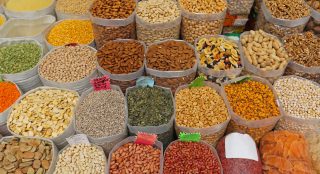There is no doubt inflation has become an economic buzzword in Nigeria. Nigerians have been experiencing a galloping increase in the cost of goods and services for several months now. Last year, we addressed why Nigeria’s inflation defies gravity. In 2022, Nigeria experienced high inflation rates, with the annual inflation rate hovering around 16%. The National Bureau of Statistics (NBS) latest report for January shows the headline inflation is now at 21.82%, representing an increase of 0.47% compared to the 21.34% recorded in December 2022. High inflation stifles the growth of an economy: it reduces purchasing power, increases production costs, and reduces foreign investment, amongst others.
Saddled with the responsibility to stabilise the economy through every means, the Central Bank of Nigeria has introduced several fiscal policies to tackle the rising inflation country is currently facing. We have also discussed some of these policies with lofty intentions to curb inflation. However, till January, these policies have not come to fruition.
In 2022, the policy-setting committee of the CBN raised the monetary policy rate (MPR), which benchmarks interest rates three times, reaching 15.5% before the end of the year. With one month and a few days into this year, the committee has again raised MPR to 17.5%, making it Nigeria’s highest in over two decades.
Last September, the Cash Reserve Ratio (CRR) for banks, which requires them to hold a percentage of their deposits with the CBN, was also adjusted to 32.5% as part of efforts to curb inflation and currency depreciation in the country.
Still, in this fight against inflation, the Central Bank of Nigeria redesigned some naira notes – N200, N500 and N1000 last November. The Apex bank revealed N2.73 trillion out of the N3.23 trillion (80 per cent) of the currency in circulation were outside the vaults of commercial banks. When the amount of money in circulation exceeds the number of goods and services available in the country, consumers are willing to pay more for these goods and services, making the price skybound. So it is understandable that the government wants to recall the excess notes in circulation. According to the CBN ₦1.9 trillion ($4.1 billion) in old notes has been collected since the exercise began. The bank aims to collect at least ₦900 billion ($1.9 billion) to achieve optimal balance.
These and more are policies the CBN has introduced to aggressively curtail the gravity-defying inflation and ease pressure on the naira. Surprisingly, or maybe not, the country’s inflation rate is still on an upward trend.
The present 21.82% inflation rate represents an increase of 0.47% compared to the 21.34% recorded in December 2022, making it the highest rate since March 2017 and the fifth consecutive monthly increase. On a year-on-year basis, the headline inflation rate was 6.22% points higher compared to the rate recorded in January 2022, which was 15.60%.
On a month-on-month basis, the urban inflation rate was 1.98% in January 2023, representing 0.17% points higher than in December 2022 (1.80%). Similarly, the rural inflation rate in January 2023 was 1.77%, up by 0.14% points compared to December 2022 (1.63%).
These high-flying figures have made it obvious that Nigeria’s inflation problem is beyond having excess cash in circulation. It is heightened by a host of factors beyond the Central Bank’s grip.
For example, Nigeria relies heavily on oil exports to earn foreign exchange. However, this sector has been plagued with unimaginable theft activities. Between January and August 2022, the country lost over $2 Billion to oil theft. One of its immediate effects is the reduction in the amount of foreign exchange earned from oil exports, leading to a depreciation of the naira and a subsequent increase in the prices for imported goods, which Nigeria is over-reliant on. Chains of fuel scarcity and the impeding fuel subsidy removal are putting pressure on energy prices.
Per the report, Core inflation, which excludes the prices of volatile agricultural produce was 1.82% in January 2023, up by 0.49% points from the 1.33% recorded in December 2022. The highest increases were recorded in prices of gas, liquid fuel, passenger transport by air, etcetera.
On another end, insecurity remains a key challenge for the country’s economy, disrupting the production and supply chains of goods and services. The agricultural sector, for instance, has had to bear arguably the gravest impact of insecurity in the country. As terrorism, banditry and kidnapping linger, farmers have been forced to abandon their farms in many parts of the country. The ugly situation has also continued to hamper new agricultural investments in the country. On top of this, Nigeria recently experienced its worst flooding in a decade, leading to the destruction of farmlands and products. Consequently, prices of food have gone over the roof.
According to NBS, food inflation was caused by increases in prices of bread and cereals, oil and fat, potatoes, yam and tubers, amongst others. On a month-on-month basis, the food inflation rate in January 2023 was 2.08%. This was 0.20% points higher compared to the rate recorded in December 2022 (1.89%).
With Nigeria’s present realities, there seems to be no end in sight for a significant inflation drop. To be realistic, it could be worse in the short term as the country is preoccupied with its transition election and has plans to remove its fuel subsidy by June. While the policies are necessary and commendable, the government needs to put more practical efforts into combating impediments outside the confines of the CBN, like reducing oil theft, and fighting insecurity, amongst other things.








